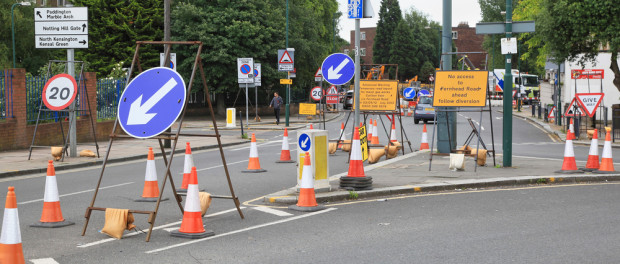Surge of big projects boost UK construction to pre-recession levels

UK construction expected to return to pre-recession levels after a surge in road, rail and energy projects.
According to the Construction Products Association, construction work is expected to rise 3.6% in 2016 and 4.1 percent in 2017, generating more than £10.4Bn for the building industry, which accounts for 6.3% of GDP.
Director of the CPA, Noble Francis, said that despite poor weather in January which slowed down growth, the industry is “positive about the next 12-18 months because the fundamentals in the sector are still good.”
“It’s been a tough decade for the industry due to the prolonged impacts of the financial crisis so the growth is a welcome relief,” he added.
An increase in housebuilding has driven growth in the sector, but infrastructure projects have been the biggest contributor, with work forecast to rise by 56.9% between now and 2019.
Private house building has risen sharply over the past few years, as a result of government subsidy schemes such as Help to Buy. It is expected to rise a further 22.7% in the next two years.
Major rail projects are included in the forecast, such as HS2 high-speed railway line and the new £4.3Bn sewer that will run 16 miles under the Thames River in London.
Other major projects include the £563M upgrade of Bank station in central London and the electrification of cross-country rail routes including the Great Western Railway and the north west network.
Although there are a large number of ongoing infrastructure projects in the UK, the CPA have warned that there may be delays.
The electrification of the Midland Mainline and Transpennine routes have already been delayed until 2019, and the planned nuclear power station at Hinckley Point C, which is set to supply 7 percent of Britain’s energy when completed in 2025, is also at risk of stalling.
Road construction is expected to benefit from the government’s £15.2Bn Road Investment Strategy run by Highways England, however there are concerns that work may need to be refocused on a small number of projects as some are running behind schedule or over budget.
Although growth is expected, it is forecast to be slower than in previous years as the industry struggles with rising costs and widespread difficulty recruiting skilled workers. The skills shortage that affects housebuilders is at risk of spreading to the rest of the industry, with employee numbers falling by 13 percent since 2008.
Medical facilities are expected to grow by 12.8%.
Spending on schools is expected to grow by 22.5% by 2019. Although the coalition scrapped the schools building programme when it came to power, it is now starting to build a small number using a revamped Private Finance Scheme initiative. Work in the education sector is also being boosted by billion pound programmes in universities.
